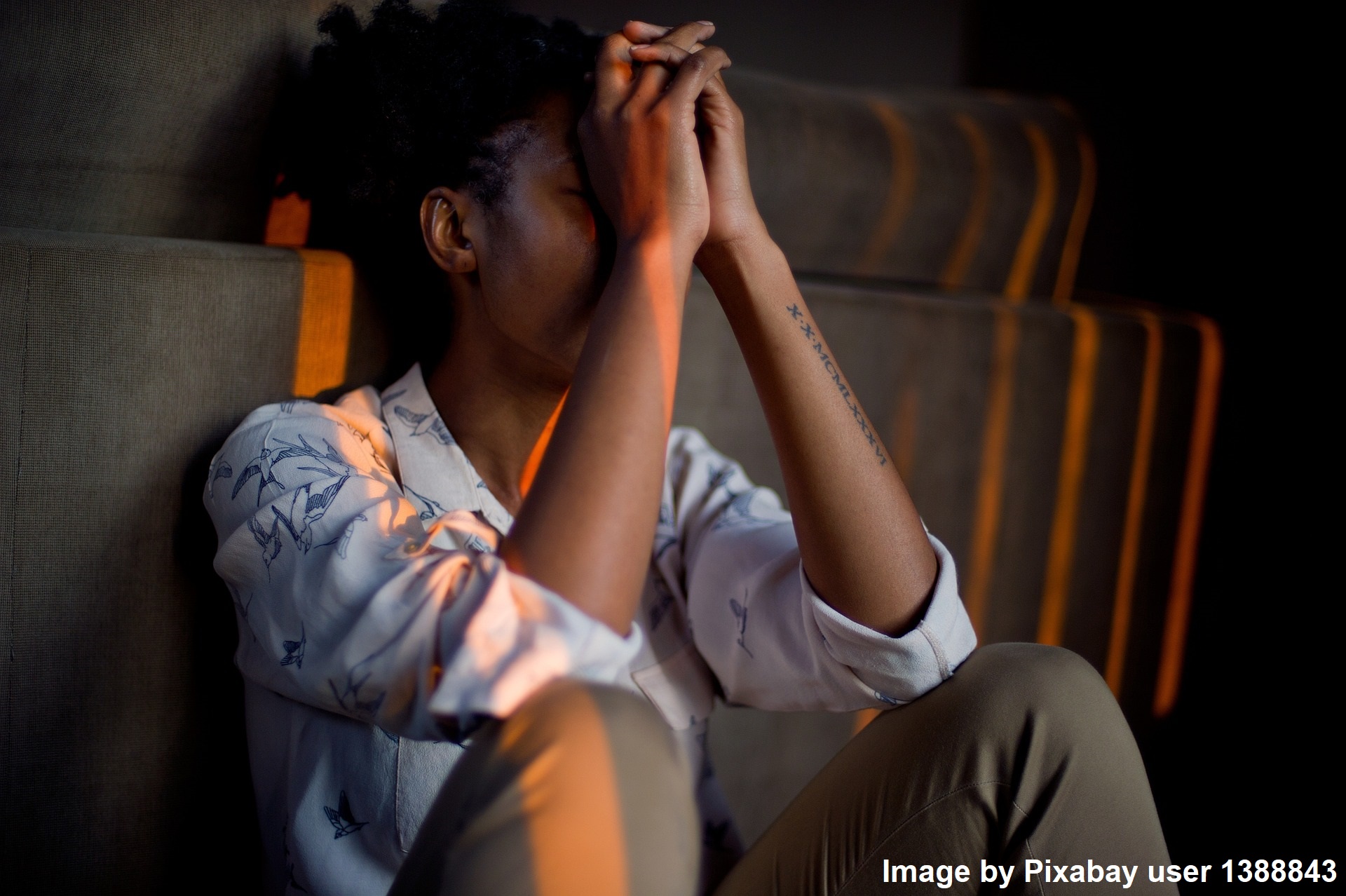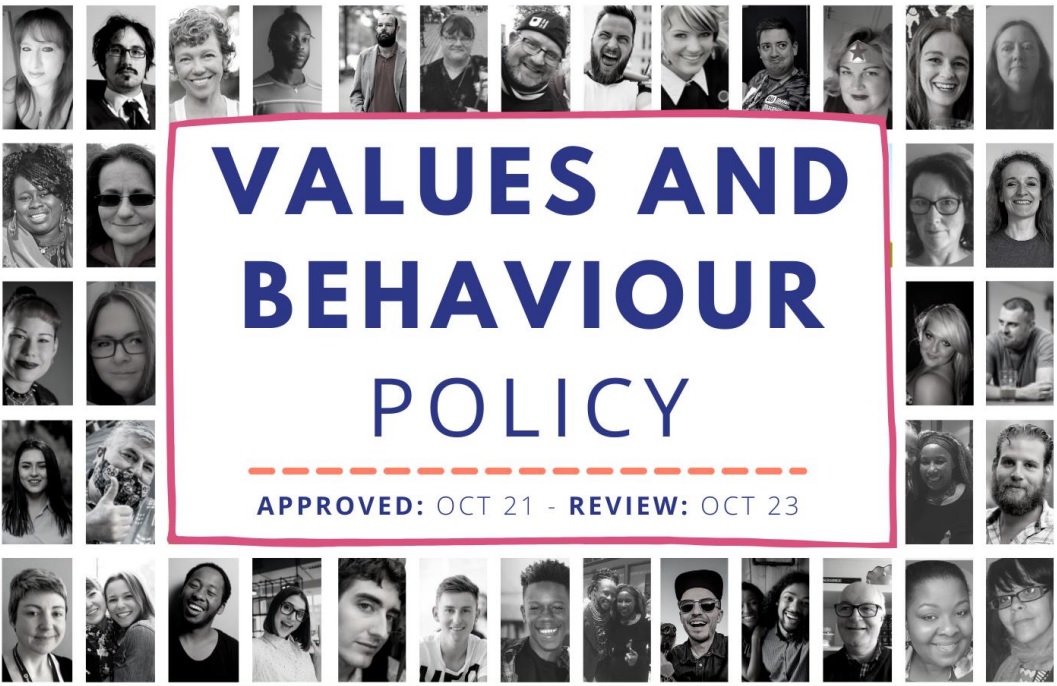Bullying and harassment are never ok, and you don't have to tolerate it. Read on for more information, including how you can seek help.
Please note if you are at immediate risk and worried about your safety then you should call 999.

What are bullying and harassment?
According to The Open University(1): Bullying is usually identified as intimidating, hostile or humiliating treatment by one or more individuals. Harassment occurs where a person is subject to unwanted conduct which has the purpose or effect of violating their dignity or creating a hostile, degrading, humiliating or offensive environment for them.
The Students Association operates under the Open University's Dignity and Respect Policy: Bullying and harassment between students or students and staff.
 We also have our own Values and Behaviour Policy, which you can download and learn more about by clicking on the link.
We also have our own Values and Behaviour Policy, which you can download and learn more about by clicking on the link.
If as a member of the Students Association you feel bullied by anybody at the university then you can make a complaint to the Association, to The Open University, or to both. Details of how to do this are included below.
Types of bullying and how to recognise them
Some forms of bullying may seem obvious, while others may be more discreet, hidden or disguised. Some different forms of bullying are explained here, but the list isn't exhaustive.
Physical bullying
Physical bullying may include hitting, kicking, tripping, pinching, pushing or damaging property. Physical bullying can cause short and long term physical damage.
Verbal or written bullying
This is saying or writing things intended to hurt somebody's feelings, including name calling, insults, teasing, intimidation, homophobic or racist remarks or verbal abuse. It could happen face-to-face, by phone, email or letter.
Social bullying
This is often more difficult to recognise as it may happen behind the bullied person's back. This is sometimes referred to as relational bullying, which involves hurting somebody's reputation or relationships.
Cyber bullying
This is when bullying happens through social media, forums or other online platforms. It may include written bullying, through images or through sharing images.
What can I do if I feel bullied?
You don't have to put up with bullying, and there are a number of things you can do about it.
You may feel isolated and frightened. Think about people who might be able to help you, for example a partner, family member, friend, a fellow student or your doctor. It may help to share your feelings and to help you realise that you are not alone.
Keep a log of any incidents, including the date, who was involved and how and where it took place. This can be important evidence and can help you to recall specific incidents later.
If you feel you can and it's safe to do so, you could try confronting the individual to tell them how they make you feel and that you won't tolerate their behaviour. For example, you could use phrases such as "I don't like it when you say/do that, so please stop". If this doesn't work or you don't feel able to take this approach there are other options too.
Seeking help from the Students Association:
The Students Association will support any member who feels they are a victim of bullying and if a complaint is made it will be investigated.
The matter should initially be raised by email to oustudents-complaints@open.ac.uk, with a summary of the issue, so that someone can be allocated to support you.
The procedures for reporting and dealing with inappropriate behaviour to the Students Association are outlined in section 12 of our Bye-Laws. Our initial approach will be to seek to resolve the issue informally, but an official complaint can be raised where these efforts are not successful. The Bye-Laws refer to the Resolving and Settling Differences Procedure, which details the full process.
If you would prefer to remain anonymous you can also notify us of issues you've faced during one of our activities or alert us to the behaviour of a volunteer or staff member through the Report + Support online tool.
The Students Association's Individual Representation service can also assist you if you make a formal complaint through The Open University.
Seeking help from The Open University:
The Open University's Dignity and Respect Policy states that: All allegations of bullying or harassment are treated seriously and thoroughly investigated. Disciplinary action may be taken in cases where bullying and harassment have been proved.
If you wish to report an incident, you can contact the Student Casework Office by emailing: sco-admin@open.ac.uk, or you can use the Report + Support online tool where you have the additional option of reporting anonymously if you prefer.
The OU will aim to deal with the issue informally unless the issue is considered serious or informal actions have not resolved the matter. If a matter is escalated to a formal (level 2) complaint then the Students Association's Individual Representation service can provide you with additional assistance if you wish.
Other useful organisations
Included here is a list of organisations that you may find helpful. Click on each one for more details.
All Rise
Internet safety and responsibility
All Rise is an international not-for-profit organisation established to bring greater accountability and responsibility to the internet. Calling out hate, trolling, stalking, harassment and bullying on the internet as cyber abuse.
www.allrisesaynotocyberabuse.com
Samaritans
Listening and support
Samaritans offer listening and support in times of need. Every 10 seconds, Samaritans responds to a call for help. You can contact them by phone, email or letter.
Call for free: 116 123
Email: jo@samaritans.org
Write a letter to: Freepost SAMARITANS LETTERS
www.samaritans.org
Stonewall
LGBTQ+ equality
Stonewall campaigns for the equality of LGBTQ+ people everywhere.
www.stonewall.org.uk
Anti-Bullying Alliance
Uniting against bullying
The Anti-Bullying Alliance is a coalition of organisations and individuals that are united against bullying.
www.anti-bullyingalliance.org.uk
Shout 85258
Text messaging support
Shout 85258 is a free text messaging support service available 24/7. Trained volunteers can offer immediate support with a range of issues, including bullying.
To start a conversation, text the word OU to 85258
www.oustudents.com/support-and-advice/shout
TalkCampus
International peer to peer support
The TalkCampus app is a peer-to-peer support platform for students around the world. It offers a safe place to talk anonymously to other students, and is monitored by professionals 24 hours a day. TalkCampus isn’t a replacement for counselling or professional support, however it is a great place to start talking and know you’re not alone.
www.oustudents.com/support-and-advice/talkcampus
The Cybersmile Foundation
Digital wellbeing
The Cybersmile Foundation is a multi-award-winning non-profit organisation committed to digital wellbeing and tackling all forms of bullying and abuse online. They work to promote kindness, diversity and inclusion by building a safer, more positive digital community.
www.cybersmile.org
Childline
Support for young people
Childline is a free service for young people to talk about anything, on the phone or online. Their website is also full of useful information on a range of issues, including bullying.
Call for free: 0800 1111
There are also other ways to contact Childline through their website.
www.childline.org.uk
Sources:
(1) Bullying-and-Harassment-Policy-PSP041.doc (sharepoint.com)